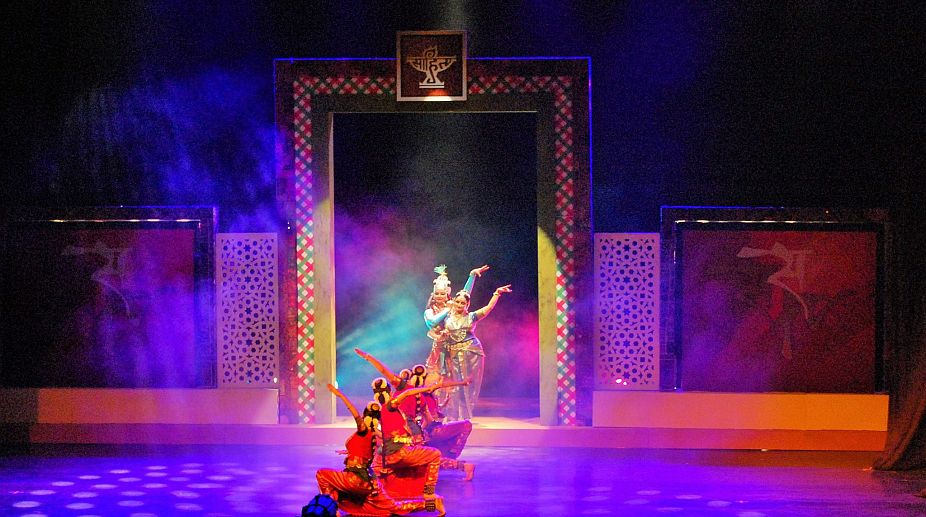Sahitya Akademi, SMVDU organise lecture on people and books
The two-day conference culminated with a panel discussion on the present status of Dogri novel with reference to prominent Indian languages.

Sahitya Akademi's ongoing annual Festival of Letters (Photo: Facebook)
In what may lead to another controversy surrounding the Sahitya Akademi, an evening that was expected to be a celebration of outstanding literary works at the presentation of the Sahitya Akademi Awards on Wednesday turned out to be a sermon of sorts as the Akademi President, in his about half-an-hour long speech, not only quoted several slokas from religious texts but also went on to remind the fraternity to practice what they preach.
Mumbai-based author Jerry Pinto, Tamil writer Vannadhasan and Hindi writer Nasira Sharma were among 24 persons who were conferred the Sahitya Akademi awards.
Sharma's Hindi novel "Paarijat," Pinto's "Em and the Big Hoom" and Vannadhasan's "Oru Sru Isai" won them the literary honour.
Advertisement
The awards were presented during the Akademi's ongoing annual Festival of Letters.
Akademi President Vishwanath Prasad Tiwari presented the winners with a casket containing a cheque of Rs.1 lakh, a shawl and an engraved copper plaque.
Noted physicist and Marathi Writer Jayant V Narlikar, who was earlier awarded the literary honour in 2014 for his autobiography in Marathi, was the chief guest.
The evening, however, began on a rather unusual note as Tiwari, in his address, seemed to be presenting some sort of a sermon to the writing fraternity.
Examining the behavior of the writers "critically", he said that the solution to the problem of some writers is that they should practise what they preach.
"Writers should always remember that he is being seen and judged by thousands of people when he writes a book or speaks from a stage. They should know what to say," Tiwari said.
He also reminded the audience that he was not giving advice to the writers but merely using "logic".A
"Whatever you preach to your readers and expect them to change, why don't you apply the same preachings to you and change yourself also," he said.
Tiwari said that the 21st century began with an attack on the arts and reminded the audience of an incident in March 2001 when a statue of Buddha was blasted in Afghanistan.
Many in the audience were surprised that while the Akademi president found it relevant to relate an almost two decades old incident of another country, he had nothing to say on the death of writers like Govind Pansare and Narendra Dhabolkar or the increasing threats of banning books and artists in India.
"As the president of the Sahitya Akademi, he would have done much better by expressing his solidarity with writers who were attacked or those whose books were banned. His speech was more of a RSS sermon than a Sahitya Akademi president," said Jahana (21), a student of Political Science from DU.
Noted poet Ashok Vajpeyi, who had returned his award in 2015, had recently criticised the Akademi for its "mediocrity". He had said that the body is dominated the mediocre, academics of low distinction and lacking in courage.
In an apparent reference to Vajpeyi, Tiwari said that the Akademi aims to reach to the farthest village of the country and therefore it is difficult to run it only with "talented souls" as they are so few in number.
Consistency and practice are as important as talent, he said.
Tiwari quoted several slokas from religious texts to establish that science and literature has been prevailing in India since ancient times.
Among the winners are eight books of poetry, seven books of short stories, five novels, two on criticism, one of essays and one play. The books were chosen on the basis of recommendations made by a jury of three in the languages concerned and approved by its executive board, the Akademi said.
The awards have been given to books first published between January 2010 and December 2014.
Advertisement